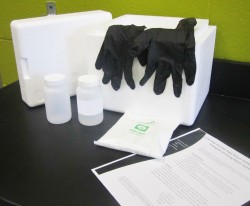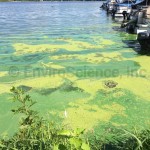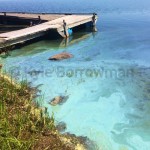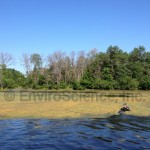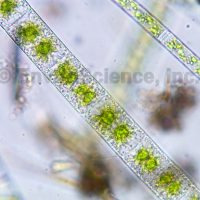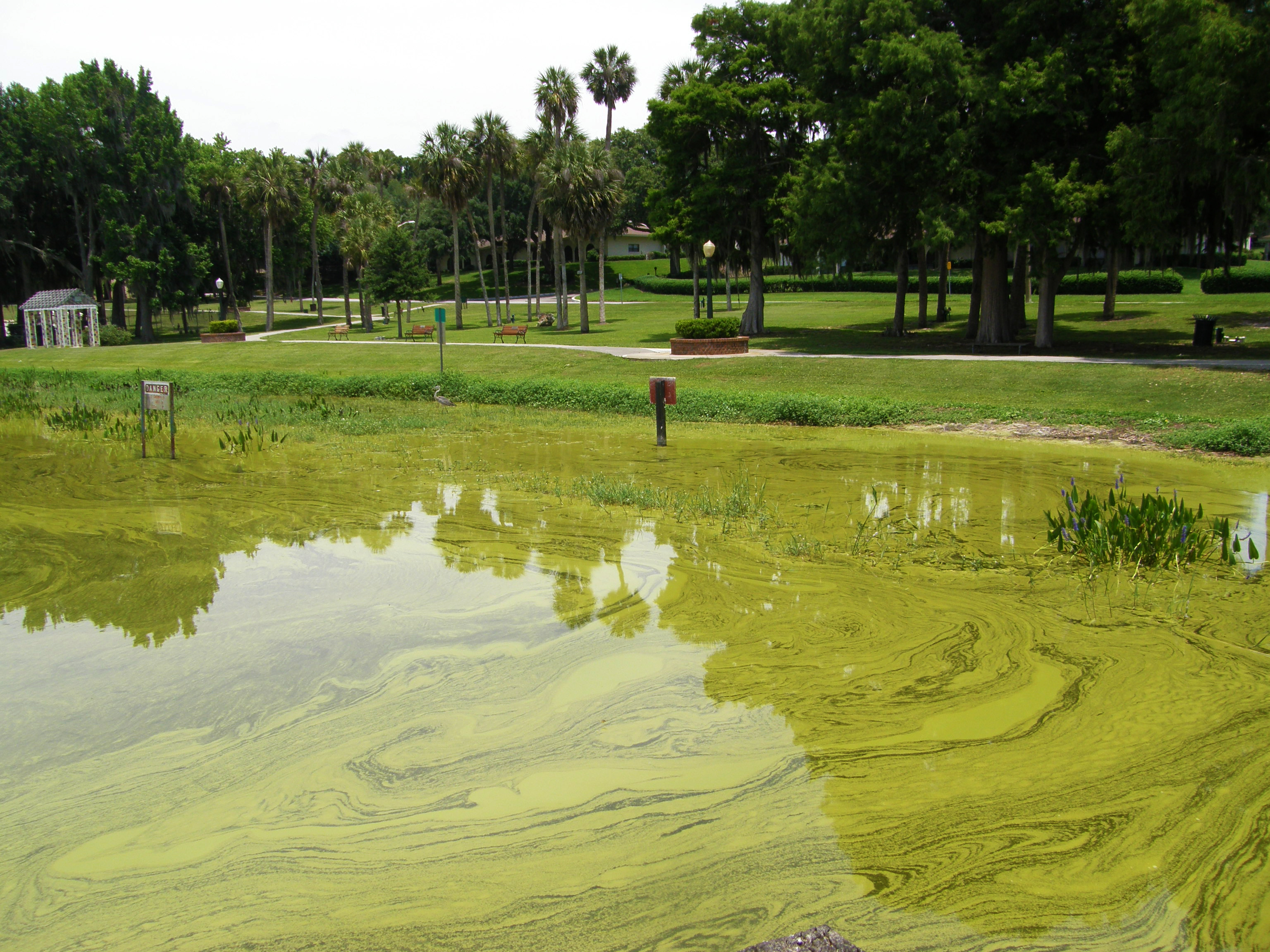
Harmful algal blooms (HABs) are overgrowths of algae in water that can produce dangerous toxins affecting the health of people, animals, and the environment. These blooms can occur in both fresh and marine waters, often appearing as scum on the surface or discoloration of the water. Understanding and addressing the factors contributing to HABs is critical for maintaining water quality and safeguarding public health and ecosystems.
Cyanobacteria, also known as blue-green algae, are photosynthetic organisms naturally found in water bodies that play a significant role in the occurrence of harmful algal blooms. Blue-green algae can proliferate and ‘bloom’ very quickly in response to warm temperatures, sunlight, and high levels of nutrients. Algal blooms can deplete oxygen and block sunlight from other organisms, and some can produce powerful toxins that can cause illness and even death to wildlife, livestock, pets, and even people.
In addition to producing toxins, these harmful algal blooms can produce taste and odor issues in public water supplies. Recommended maximum levels of the most common of these algal toxins in drinking water and waters used for recreation are extremely low, making many of these compounds among the most deadly toxins known to man. These problems can be caused by several genera of algae, including Microcystis, Planktothrix, Dolichospermum (formerly Anabaena), and Cylindrospermopsis. EnviroScience is experienced in the analysis of algae/cyanobacteria populations and the quantification of common algal toxins.
Harmful Algal Bloom Services:
Algae Toxin Testing via QPCR: NO GENE = NO TOXIN
A variety of environmental factors may determine whether a harmful algal bloom (HAB) is producing toxin(s) at a given time and place, and a bloom that is not producing toxins one day may produce them the next. Genomic cyanobacteria screening via DNA-based Quantitative Polymerase Chain Reaction, or qPCR, helps determine the potential for cyanotoxin production. It is possible to have a gene present without cyanotoxin production; however, if cyanotoxins are being produced, the gene must be present. The presence or absence of toxin-producing genes in an algae bloom can help determine whether further testing for algal toxins via Enzyme-linked immunosorbent assay (ELISA) tests or another method is warranted.
qPCR tests for the following toxin genes are available from EnviroScience:
- Microcystin/Nodularin
- Cylindrospermopsin
- Saxitoxin
A test for Anatoxin is under development and is expected to be available soon.
In addition, qPCR can estimate the number of cyanobacteria present in a bloom using the 16S rRNA gene. Ran concurrently with the toxin DNA tests, this test reports the percent of the cyanobacterial bloom that is capable of toxin production.
Contact one of our HAB specialists at 800-940-4025 for more information on these tests.
Algae Toxin Testing via ELISA Method
ELISA tests are screening assays that detect specific groups of cyanotoxins. ELISAs have the ability to detect these toxins at extremely low levels in both surface water and drinking water. EnviroScience biologists provide rapid turnaround, with most samples being completed within 2 business days.
(including many toxins on the USEPA Candidate Contaminant List 3 (CCL 3))
- Microcystin-LR
- Anatoxin-a
- Saxitoxins
- Cylindrospermopsin
Algae Identification and Enumeration
- Qualitative or Quantitative Identification with Biovolumes
- Cyanobacteria Specific Identification and Enumeration
- Photomicroscopy
- Periphyton & Phytoplankton Identification and Analysis
Algae and Algal Toxin Sampling
- Turn-key Sampling
- Sampling Kits – (Request a kit using the contact form below)
- Sampling Services, Training, Assistance, or Materials as Needed
Simple Harmful Algal Bloom Sampling Kits
- Sampling kits with intuitive instructions and prepaid shipping
- Experts who create a customized monitoring plan based on test results and the client’s need
- 24-hour turnaround analysis available for cyanotoxin analysis
- Long-term solutions developed by an experienced team of limnologists and aquatic biologists
Comprehensive Lake/Reservoir Management
- Watershed Assessment
- Algae and Macrophyte Management
- Fishery Evaluations
- Diagnostic Lake Surveys
- Other analyses available upon request
In Action
- Harmful Algal Bloom
- Blue Green Algae
- Harmful Algal Bloom
Need Harmful Algal Bloom testing and support for your project?
Our experts are here to discuss your needs and how we can help you move your project forward. Fill out the form below for more information on our services or to request a quote, and we’ll get back to you within 24 hours. If you need a response within an hour or less, please call us at 800-940-4025.
Few environmental firms in the country retain EnviroScience’s degree of scientific know-how, talent, and capability under one roof. The diverse backgrounds of our biologists, environmental engineers, scientists, and divers enable us to provide comprehensive in-house services and an integrated approach to solving environmental challenges—saving clients time, reducing costs, and ensuring high-quality results.
Our client guarantee is to provide “Excellence in Any Environment,” meaning no matter what we do, we will deliver on our Core Values of respect, client advocacy, quality work, accountability, teamwork, and safety. EnviroScience was created with the concept that we could solve complex problems by empowering great people. This concept still holds true today as our scientists explore the latest environmental legislation and regulations and incorporate the most up-to-date technology to gather and report data.
EnviroScience expertise includes but is not limited to aquatic surveys (including macroinvertebrate surveys and biological assessments); ecological restoration; ecological services (including impact assessments, invasive species control, and water quality monitoring); emergency response; engineering and compliance services; endangered mussel surveys; laboratory and analysis; stormwater management; sustainability services; threatened and endangered species; and wetlands and streams (including delineation and mitigation). Further, EnviroScience is one of the few biological firms in the country that is a general member of the Association of Diving Contractors International (ADCI) and offers full-service commercial diving services.



